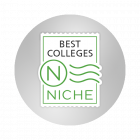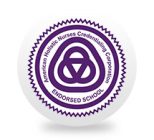
Xavier Online’s MSN programs are designed for RNs who have a Bachelor of Science in Nursing (BSN) degree and offer pathways to a wide variety of rewarding careers.
It’s widely known that a master’s of science in nursing (MSN) can lead to higher earnings and better nursing career opportunities, but earning your MSN from a prestigious university like Xavier can open the door to the nursing career you’ve always wanted.
If you are a registered nurse interested in education, forensics, or becoming a nurse practitioner, Xavier offers exciting online MSN options for you! These online MSN programs are designed for RNs who have a Bachelor of Science in Nursing (BSN) degree and offer pathways to a wide variety of rewarding careers. Our Post Master’s Certificate Programs for those who already have a MSN offer even further ways to expand your career.
Request More Information
By submitting this form, I understand that Xavier University may email me or contact me via telephone, pre-recorded messages, and/or text messages about educational services at the phone number(s) provided, including a wireless number, using an automated technology. I also understand that consent is not a condition of enrollment.
Choose from four MSN specializations to focus on the career and future you want. If you’re unsure which track is right for you, our advisors will partner with you to discuss your career goals.
Xavier offers four nursing online certificates to help you meet the demands of the field.
You’ll get the personal attention and flexibility needed to reach your goals at your pace. Our invested professors and small class sizes will set you up for success.
Our Jesuit Catholic values are based on a vision of a world changed for the better, emphasizing service and community engagement in addition to academics.
We offer exceptional online programs at an affordable cost. Numerous financial aid resources are available for our online students, making education more affordable.

Best Online Graduate Nursing Programs
(U.S. News & World Report)

Best College in Ohio for Nursing
(Niche)

Programs in the Nation Endorsed by American Holistic Nurses Certification Corporation
The online master’s of science in nursing program trains nurses to serve and lead, empowering nursing students to provide the best possible care while taking on additional responsibilities and higher-level functions in health care. Earn an advanced degree online from a nationally-recognized and highly-accredited program – Xavier’s master’s of science in nursing is one of only 17 schools in the U.S. to be endorsed by the American Holistic Nurses Certification Corporation – on a schedule that works for you.
Note: This online master’s of science in nursing (MSN) degree program will not provide licensure in any state.
If you would like to continue your collegiate nursing education beyond a master’s degree, Xavier also offers a Doctor of Nursing Practice in Population Health Leadership (DNP) program.
This master’s of science in nursing (MSN) online program is an accredited program by the Commission on Collegiate Nursing Education (CCNE), the premier accrediting agency for baccalaureate and graduate nursing programs.
This program is approved by the Ohio Board of Nursing (OBN).
These online programs are endorsed by the American Holistic Nurses Credentialing Corporation (AHNCC). Only seventeen schools in the nation currently have this endorsement, and this endorsement permits graduates to sit for the Holistic Nurse Certification (HNC) examination. The MSN Education Track program (and the PM certificate program in Nursing Education) prepares graduates to sit for the NCC Certified Nurse Educator exam. The MSN FNP program (and the PM Certificate Program) prepares graduates for FNP certification through either ANCC or AANP certification boards.
No. The master’s of science in nursing degree is from Xavier University and is awarded on meeting coursework standards that are independent of course delivery mode. Participants will earn an MSN degree.
Participation expectations vary by professor. Courses will be asynchronous with no set meeting times; however, practicum and scholarly project courses may include an online synchronous session (at the discretion of the instructor) at the end of the semester for student sharing/collaboration purposes. Nursing administration and faculty in this program are very sensitive to the need for flexibility of working professionals.
APRNs are nurses who have met advanced educational and clinical practice requirements. The four types of Advanced Practice Registered Nursing roles include:
Having a master’s degree in nursing opens the door for many different career opportunities. Some potential career paths for a nurse holding an MSN degree may include:
Choosing the right nursing online program for your MSN degree is important. When evaluating different masters programs, keep the following in mind:
None of the MSN programs or Post Master’s certificate programs here (Education, FNP, Forensics) provide nursing licensure in any state. Nursing licensrue is a pre-requisite for admission to these programs.
If you would like to continue your collegiate nursing education beyond a master’s degree, Xavier also offers a Doctor of Nursing Practice in Population Health Leadership (DNP) program.